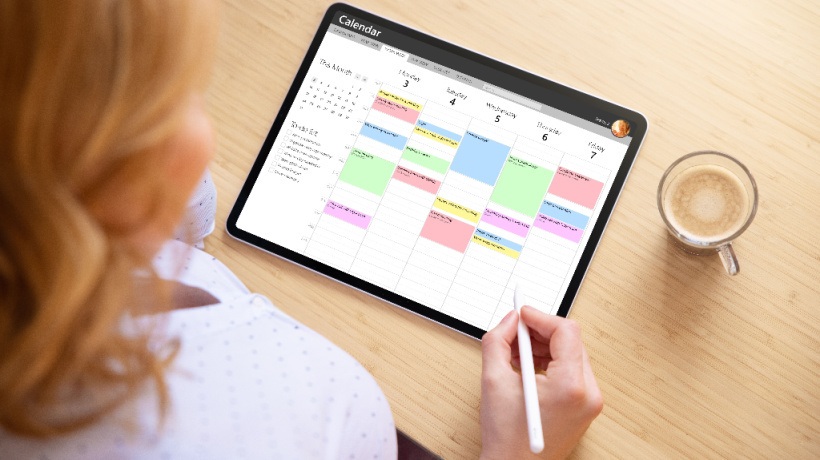Put On Your Oxygen Mask First To Succeed
As machines become increasingly accurate and intelligent, we humans will need to sharpen our cognitive skills. One of your primary responsibilities as a Learning and Development leader is to ensure that you empower the workforce to develop the four sets of skills that are critical to thriving in 2030. A series of articles, eLearning Skills 2030, explores all the skills to make your job easier. This article, the tenth in the eLearning Skills 2030 series, explores practicing self-care, why it is a critical skill, and how to sharpen it.
What Is Self-Care?
Until recently, self-care was largely pooh-poohed as too "warm and fuzzy," until the COVID-19 pandemic hit and reminded us all how important it is to take care of our bodies, minds, and spirits so that we can withstand the long haul and continue to lead our teams successfully. In her recent Harvard Business Review article, Dr. Palena Neale [1] points out that when leaders practice self-care, they become better at caring for their teams and the mission. As Dr. Neale points out, leaders who exercise, eat healthily, and get enough sleep are more clear-minded, empathetic, and agile. In my related article on three critical traits to effective leadership today, I discuss self-care in the context of the maxim "in case of emergency, put on your oxygen mask first before helping others," which rings true now more than ever. Today, and in times of crisis, it is critical to take care of ourselves so that we remain resilient when challenges arise.
Why Is It Important?
Shannon Huffman Paulson [2], author of The Grit Factor, Courage, Resilience, and Leadership In the Most Male-Dominated Organization In the World, and the first female army helicopter pilot among 190 men, talks about the importance of taking care of yourself. She says that to sustain dogged determination every moment of every day, you must rest and take care of yourself physically and mentally. Thrive Global CEO Arianna Huffington discusses how she began her journey to understanding the importance of self-care after collapsing on the floor from work-induced exhaustion and breaking her cheekbone. Her own journey prompted her to recognize the importance of self-care for others and inspired her to found Thrive Global, a US-based organization that provides behavior change technology to raise awareness and, importantly, move people to action and change of behaviors.
How To Practice Self-Care
Self-care is the antidote to work burnout and a vital skillset for long-term personal and professional success for individuals and organizations. Huffington underscores the importance of breaking self-care down into small micro-steps that can help us actually practice self-care. We can make our bodies more resilient by exercising consistently, eating healthy food, and getting enough sleep. A more resilient body results in a more resilient mind. In ancient Rome, the maxim "a healthy mind in a healthy body" was critical and pervasive in daily life. Today, Virginia-based Rachel Boehm, a workplace wellness expert, says that self-care, including exercise, nutrition, sleep, and stress management, "builds resilience like compound interest." The Washington University in St. Louis highlights nine tips on how to practice self-care. Here we focus on 3:
1. Sleep Adequately
Research shows that getting enough sleep is vital to our well-being, cognition, and mood, and can prevent diseases such as heart disease [3]. Sleeping better and adequately means that we are clear-minded, can make better decisions, and as a result, lead better. Research also shows that, while it depends on the person how much sleep they need, the ideal amount of time is between seven to eight hours of sleep.
2. Exercise Consistently
According to the Mayo Clinic, exercising is vital to our well-being. Exercise strengthens our body, reduces stress, and generates endorphins, which improve our mindset and outlook on life. It's important to exercise consistently to reap the benefits in the long term.
3. Eat Healthily
Nutrition is another vital element of our well-being and self-care. Eating healthy foods, including fruits, vegetables, healthy proteins, and healthy fats, can make a significant positive difference in our health and mindset.
Additionally, you can consider a few other practices to improve your overall self-care, including cultivating your purpose, practicing mindfulness, helping others, and saying no to distractions.
-
Cultivate Your Purpose
Understanding your "why" will eliminate stress induced by not knowing "where you are going in life" and give you a sense of peace and focus. To cultivate your purpose, you must think deeply about your values and what you deem important in life. You can search for tools such as The Passion Test to help you narrow down and define your purpose.
-
Practice Mindfulness
Self-care is about taking care of yourself, so do things you like or try new hobbies. Some ideas include walking, journaling, engaging in a gratitude practice, knitting, crocheting, reading, listening to music, gardening, photography, or coloring. Mindful activities give us time to replenish our emotional needs and refresh our mindset.
-
Help Others
Helping others increases our connection to our humanity by doing good. In turn, doing good improves our outlook and enhances our sense of purpose and hope in life. Research shows that helping others improves our well-being [4]. You can volunteer your time to build homes for those in need, teach, mentor, and even donate to causes you care about.
-
Eliminate Distractions By Saying No
Eliminate that which does not serve you. Setting boundaries such as reminders on your calendar to block out time to take a walk, practice mindfulness, and exercise is an excellent way to say no to all the pressing demands on your time. Focusing on what is vital to your work and well-being and eliminating what is not by saying no can help you optimize your well-being and make self-care a priority.
As a leader, you not only have to practice self-care for yourself; you also have a responsibility to help your team to do the same. Research by MIT Sloan highlights practices organizations can apply to foster a self-care culture for their employees. These practices begin with modeling the behavior and providing the infrastructure and practices that empower and enable employees to take care of themselves. Self-care is a vital skill in leading and teaming today, leading to 2030, and beyond.
References
[1] “Serious” Leaders Need Self-Care, Too
[2] To Build Grit, Go Back to Basics
[3] The Extraordinary Importance of Sleep
[4] Helping others also helps yourself: these new studies explain why










